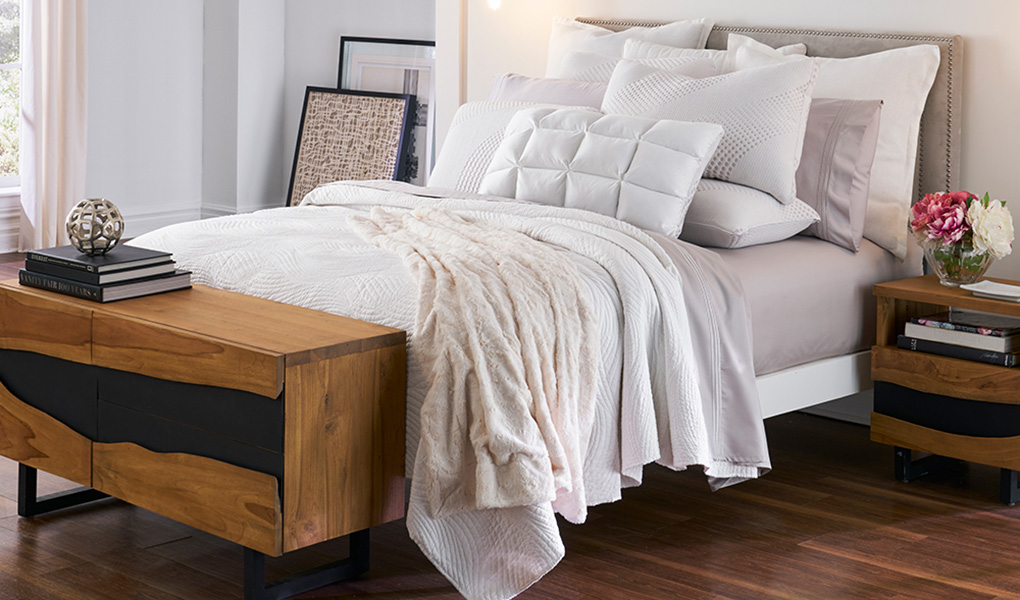Studies show that there are significant benefits to getting eight hours of sleep per night, including increasing your longevity, managing your appetite and boosting your immune system. Generally speaking, having the recommended eight hours of sleep is one of the best ways to improve your health and lifestyle. Sleep is not only is it great for the body, but it helps you focus on the tasks at hand, making you a happier, more efficient person. Everyone needs sleep – and a lot of people truly love to sleep! But it can be so irritating when you have a hard time getting that shuteye. Whether you toss and turn for several hours before finally drifting off or find yourself wide awake at 3 am and unable to fall back asleep, poor quality sleep can spell a rough next day.
Good news! You have more control over the quality of your sleep than you think. And if you are willing to make some small changes, you can get your body in a better sleep rhythm and avoid being robbed of those good eight hours you deserve. Here are 5 ways on how to improve your quality of sleep simply by changing some of your habits:
Start with a good sleep schedule
A good, consistent schedule for when you go to sleep is key. Syncing your body’s natural sleep-wake cycle, or circadian rhythm is important for helping your body get used to when it should be sleeping. You will learn to fall asleep and wake up at the same time more easily. Start by choosing a bedtime when you would normally feel tired. Then make a schedule for hitting the sack at the desired bedtime, making sure to allocate for eight hours, and stick to it. Over time, you can alter your schedule by one or two hours and not see any impact to your sleep. The important thing is to get in a pattern and get your body’s sleep rhythm in place first.
Avoid your vices before you sleep
Unfortunately, many things you may like to do in the evening could be negatively impacting your quality of sleep. Alcohol, caffeine and cigarettes can all prevent a person from falling and staying asleep. By reducing or avoiding these altogether, you can begin sleeping better, and also create a healthier lifestyle for yourself. Caffeine is a stimulant that keeps you energized and awake. So does tobacco. While alcohol may initially bring on sleep, after a few hours it acts as a stimulant, creating an unhealthy sleeping habit. Limit your consumption of these three to improve your sleep.
Avoid naps
Having “power” naps during the day can energize you for the next task at hand, but to many and too long of a nap can also make you feel less tired during night time when you need to be getting good quality sleep. Remove those catnaps for good, or at least limit them to about 10-15 minutes throughout the day to avoid serious sleep struggles at night.
Create a comfortable sleep environment

Your environment triggers not only your emotions but your quality of sleep as well. Make sure that your room is at a cool, comfortable temperature and there are no stressful items that keep you up, such as cell phones or laptops. Experts recommend keeping room temps set at 60-75 degrees for optimal comfort. Dim lighting and low outside noise also factor into a comfortable sleep environment. Invest in blackout shades and a good quality white noise machine if necessary. Finally, comfortable mattresses and pillows are a must for creating a sleep-inducing bedroom in your home.
Incorporate good diet and exercise into your routine
It’s important to understand that some foods can impact your quality of sleep. In particular, heavy meals can cause your stomach to expend a lot of energy trying to digest what you just ate…resulting in a night of tossing and turning. By contrast, light, filling meals will help you fall asleep faster. Spicy and acidic food has the potential to cause heartburn, which may also prevent quality sleep. Regular exercise is important too, as they energize you for the day and lessen the chances of taking short naps during a break. Just make sure you exercise 3-6 hours before bed. Even just 20 minutes of light yoga or stretching will help improve your quality of sleep, so get moving and take some time off your schedule for a quick walk or run.
Regular exercise can energize you for the day and lessen the chances of needing to take short naps. Experts suggest exercising early – about three to six hours before bedtime – for best results. Even something as simple as 20 minutes of light yoga or stretching will help improve your quality of sleep – so get moving and plan the time in your schedule for a quick walk or run before starting to wind down your day.
Start small and focus on these five adaptations to your routine to see if you can improve the quality of your sleep. If you make these changes and are still struggling, consult a doctor regarding your odd sleeping patterns and have it checked for a possible underlying health problem. Better sleep means a happier, healthier life – so take these steps and grab for yourself the life that you deserve!
Sources:
http://healthysleep.med.harvard.edu/healthy/getting/overcoming/tips
http://www.helpguide.org/articles/sleep/how-to-sleep-better.htm
https://sleepfoundation.org/sleep-tools-tips/healthy-sleep-tips/page/0/1
